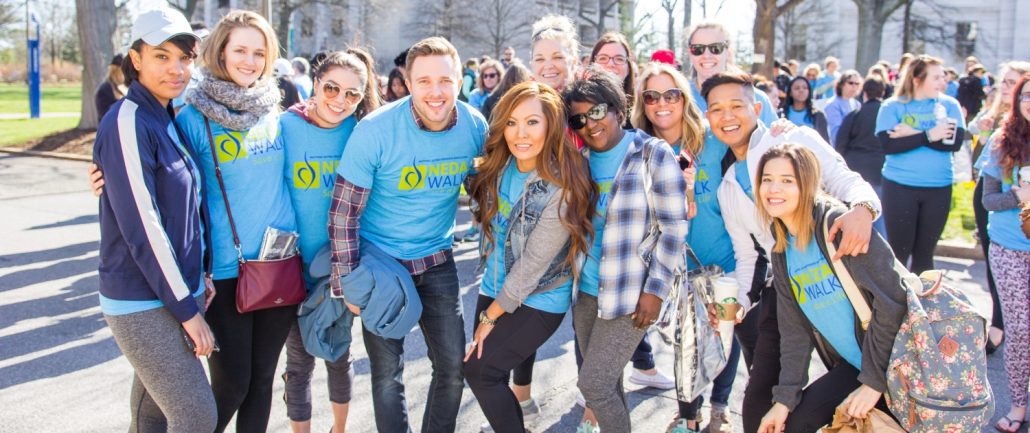Get Involved
Join a community of dedicated volunteers and advocates committed to supporting individuals and families affected by eating disorders through mission-centered programs such as NEDA Cares, Campus Warriors, and awareness campaigns. Get involved today!

When you volunteer, you’ll have the opportunity to expand your knowledge about eating disorders and learn useful professional skills. You’ll also form connections with members of a vibrant and welcoming community.
NEDA leads and participates in many awareness campaigns throughout the year in an effort to raise awareness for eating disorders and related issues.
NEDA Care Fairs build on the success of the walks while fostering greater connection, inclusivity, and support within the broader mental health community. Join a NEDA Care Fair today!
The Campus Warriors program is an outreach initiative. It engages colleges and universities across the United States. The goal is to raise awareness about eating disorders and fundraise for NEDA.
Campus Warriors include individual students, faculty members, and student organizations. They have direct or indirect lived experience with eating disorders and represent NEDA on their college and university campuses.





